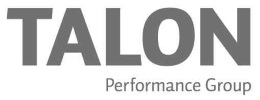Every lawyer needs an updated resume. Why? A resume is your first impression, a chronology of your work history, and your lead into your career advancement.
A great interview-generating legal resume is all about differentiating yourself from others competing for the same jobs. With constantly changing trends in strategic resume writing, new ways to accomplish this differentiation are always emerging. If you take advantage of the latest trends and keep your resume updated, you are much more likely to stand out, make a positive connection, and stimulate the attention you deserve.
Here are a few of the latest trends:
#1 – Include a leadership/personal brand statement.
Begin to build a vibrant message highlighting your vitality, leadership strengths and unique value proposition by answering questions like these:
• What talents and characteristics do you possess that represent the best in your practice?
• How did you achieve the career successes that most benefited your firms/companies? What specific actions did you take?
• What critical contributions did you make to past firms/companies that wouldn’t have happened if you weren’t there? You will further support your brand statement if you can quantify your actions and contributions. Acceptable quantifiers are accomplishments measured with numbers, time or dollars.
#2 – Format your resume for the reader.
More and more hiring decision-makers are reviewing resumes on mobile-type devices when they are on the go. Brief, concise, brand-focused statements of value surrounded by enough white space to make them stand out will have the greatest impact. Long, dense paragraphs make it hard for the reader to quickly access and digest important make-or-break information about you.
If one has to work at finding your skills and differentiators, it is easier to move on to the next person. Chronological resumes often make the reader work at finding your transferable skills. Functional resumes are difficult as they often lack context around when and where a skill was honed. Make it easy for the reader to review your resume and want to know more using a hybrid format.
Experienced lawyers, lead with your strongest transferable skill and not your academics. What are they looking for in a hire? What problem are they looking to solve? What strategies are they looking to implement? This is the information a reader is seeking in a resume review and the reason they will want to know more about you.
#3 – Keep your resume to two pages.
To accommodate the need for brevity, pare down and consolidate all your great achievements and qualifications into a quickly readable communication. Provide deeper slices of success “stories” in collateral one-to-two-page documents – representative transactions, leadership initiatives, achievement summary, career biography, reference dossier, etc. These companion documents can be crafted to stand alone and to support your resume’s first impression.
#4 – Use the top of your resume’s first page to your best advantage.
Since the top of your resume is the first, and possibly the only section that will be read, place your most important information here. It’s okay to move up to the forefront information normally found further down within the professional experience section – especially if it represents the best you have to offer. If you immediately capture your readers’ attention with vivid illustrations of your promise of value, employers will be more likely to read the entire document.
#5 – Highlight your key areas of expertise once.
Instead of taking up precious space repeating obvious lists of responsibilities for each position you’ve held, consolidate them in the top part of the first page. For best impact, position them in nicely formatted columns or a shaded graphic box. Tailor your list of responsibilities to a position by listing the skills sought in the position first.
#6 – Use Keywords.
Use the same keywords as in the position description. If you are submitting a resume online, often the recruiting systems will search using keywords. This is also true if an internal recruiter is doing an initial resume screen; if the recruiter is not familiar with a legal practice, the review often consists of a keyword scan.
Hiring partners and professionals want a more technical and specific description of your career than your bio provides—they want to identify attributes, gaps in your employment and your technical expertise. A strong resume is clear, concise and tailored to a specific position. Keep your resume updated and relevant so you will be prepared to take full advantage of an opportunity when it arises.
